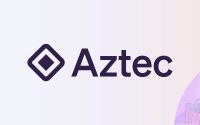Kraken Ordered To Provide IRS With Crypto Data
A federal court has mandated popular cryptocurrency exchange Kraken to surrender account and transaction information to the Internal Revenue Service (IRS). The IRS has stated its need for this data to investigate potential underreported taxes by users of the exchange.
A federal court ordered crypto exchange Kraken to turn over account and transaction information to the IRS. Kraken must turn over information for users who transacted with more than $20,000 over the course of a calendar year for that year, including the user's name (and any…
— Wu Blockchain (@WuBlockchain) July 1, 2023
IRS Pursues Tax Liabilities of Kraken Users
The court order stems from an earlier court petition filed by the IRS in the Northern District of California in February. This action followed Kraken’s settlement with the U.S. Securities and Exchange Commission (SEC), where the exchange faced allegations of violating securities laws with its staking service. The IRS claimed that it had previously issued a summons to Kraken, which the exchange had failed to comply with. The tax authority now aims to assess tax liabilities of users who engaged in cryptocurrency transactions on the platform between 2016 and 2020.
According to the court order issued on Friday, Kraken is required to provide information for users who transacted more than $20,000 in a calendar year. This includes users’ names, birthdates, taxpayer identification numbers, addresses, phone numbers, email addresses, and other related documents. Additionally, the exchange must furnish blockchain addresses and transaction hashes that are already part of the transaction data it can share. It may also be required to provide raw data to the IRS.
Judge Criticizes IRS Overreach
However, Judge Joseph Spero, who presided over the case, appears to have limited the IRS’s demands by denying some of their requests. The judge opined that the scope of the information sought by the IRS, including employment details and source of wealth, was broader than necessary to achieve the agency’s purpose. The court emphasized the need for the summons to be narrowly tailored to serve its intended objective.
In his analysis, Judge Spero stated, “The Court finds that to the extent the first three requests are aimed at establishing the identities of the Kraken account holders who fall within the Doe definition, the information sought in these requests is much broader than what is necessary to achieve that purpose for the vast majority of Doe users.” Kraken now faces the task of complying with the court’s order while ensuring the privacy and security of its users’ information. The outcome of this case could potentially set a precedent for future regulatory scrutiny of cryptocurrency exchanges and their users’ tax obligations.



